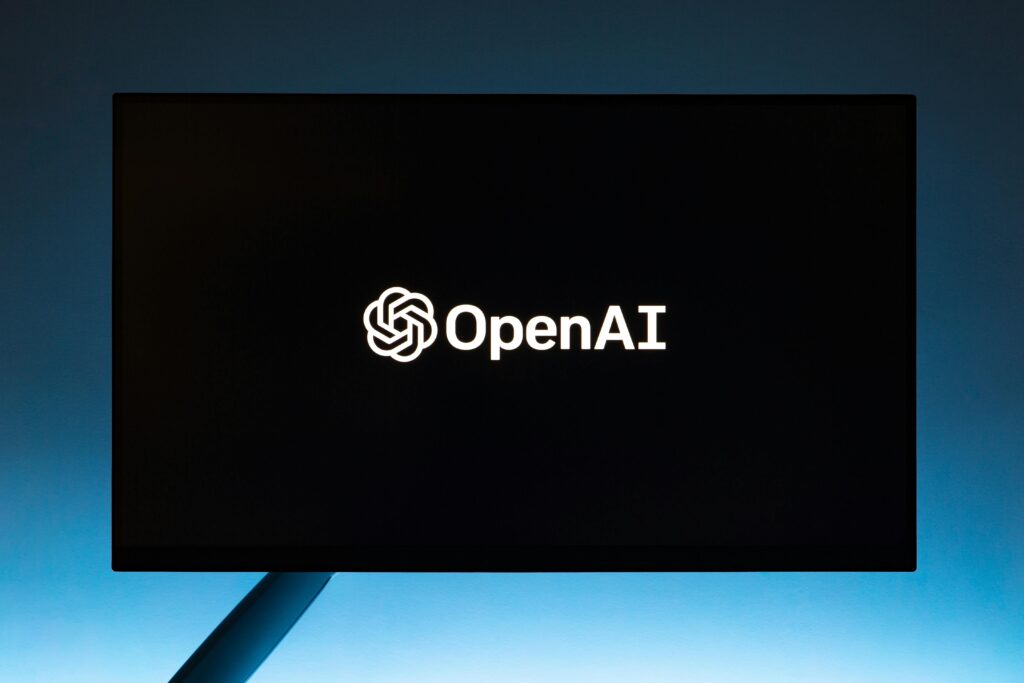In today’s fast-paced digital world, it’s hard to ignore the buzz surrounding AI marketing tools. You might be wondering how artificial intelligence is transforming the way businesses connect with customers. Well, buckle up! We’re diving into the fascinating realm of AI in digital marketing and how they’re revolutionizing marketing strategies for businesses of all sizes.
Understanding AI Marketing Tools
Let’s kick things off by exploring the various AI marketing tools available to you. These tools are not just fancy gadgets; they’re designed to make your marketing efforts more efficient and effective. Imagine having a virtual assistant that never sleeps, always ready to crunch data and provide insights. That’s what AI marketing tools can do for you!
For instance, platforms like HubSpot and Marketo use AI to help you automate your email marketing campaigns. This means you can send personalized messages to your audience at the right time without lifting a finger. Wouldn’t that be a dream? Additionally, tools like Hootsuite and Buffer leverage AI to optimize your social media posts, ensuring they reach the maximum number of people. You can spend less time worrying about when to post and more time crafting engaging content.
Another exciting development is the use of chatbots in customer service. These AI-powered assistants can handle customer inquiries 24/7, providing quick responses and freeing up your team to focus on more complex issues. Think of it as having an extra set of hands that never gets tired! By integrating chatbots into your marketing strategy, you can improve customer satisfaction while also collecting valuable data on customer preferences.
Harnessing Artificial Intelligence Strategies
Now that we’ve covered some AI marketing tools, let’s talk about the strategies you can implement to make the most of them. Your approach to integrating artificial intelligence strategies into your marketing plan can set you apart from the competition. One popular strategy is predictive analytics, which uses historical data to forecast future trends. By understanding your customers’ behaviors, you can tailor your marketing campaigns to resonate with them.
For example, imagine knowing which products your customers are likely to purchase next. With predictive analytics, you can send targeted promotions that encourage them to make a purchase. This not only boosts sales but also enhances customer loyalty. Who doesn’t love receiving personalized offers that genuinely interest them?
Another effective strategy is content creation powered by AI. Tools like Copy.ai and Jasper can help you generate blog posts, social media content, and even product descriptions in a snap. You simply input a few keywords, and these tools create engaging content for you. This means you can maintain a consistent online presence without spending hours brainstorming ideas. Plus, you can focus on refining your unique voice while AI handles the heavy lifting.
Let’s not forget about the power of segmentation! AI can analyze customer data to segment your audience into distinct groups based on their behaviors and preferences. This allows you to craft tailored marketing messages that resonate with each segment. Imagine sending out a special offer to loyal customers while introducing new products to first-time visitors. You’ll be amazed at how effective targeted marketing can be!
The Future of Marketing Technology
As we look ahead, the future of marketing technology is undeniably bright. AI is just scratching the surface of its potential, and you can expect even more innovative solutions to emerge. For instance, advancements in natural language processing (NLP) are enabling more sophisticated interactions between brands and consumers. You’ll soon find that chatbots and virtual assistants can hold more human-like conversations, making customer interactions feel more personal.
Moreover, the rise of voice search technology is changing how consumers discover products and services. You can now optimize your content for voice search queries, ensuring your business stays relevant in this new landscape. Think about it: when was the last time you asked your smart speaker for product recommendations? As voice search continues to grow, businesses that adapt quickly will be at a significant advantage.
Additionally, the integration of AI with augmented reality (AR) is poised to create immersive shopping experiences. Imagine being able to visualize how a piece of furniture would look in your living room before making a purchase. This level of interactivity can enhance customer engagement and drive sales like never before. The possibilities are endless, and you don’t want to miss out on the future of marketing technology!
In conclusion, embracing AI technologies and marketing tools can revolutionize your marketing strategies. By understanding how these innovations work, you can craft personalized experiences that resonate with your audience. Whether you’re automating your email campaigns, harnessing predictive analytics, or preparing for the next wave of marketing technology, the key is to stay curious and adaptable. The future is bright, and with AI by your side, you’re well-equipped to navigate the ever-evolving marketing landscape. So, are you ready to dive into the world of AI? Your marketing game is about to get a serious upgrade!

Case Studies: Successful Implementations of AI in Marketing Campaigns
When it comes to marketing, you may have heard a lot about how AI is changing the game. Well, let’s dive into some exciting case studies of leading brands that have successfully implemented AI marketing tools. These stories not only inspire but also show you how artificial intelligence strategies can transform your marketing efforts. So, grab a snack and get ready for some incredible insights!
Starbucks: The Power of Personalization
Starbucks is a prime example of how to leverage AI effectively. The coffee giant uses AI marketing tools to enhance customer personalization through its mobile app. By analyzing your purchasing history and preferences, Starbucks can suggest drinks and food items tailored just for you. Imagine walking into your local Starbucks and having your favorite drink recommended before you even order! This level of personalization not only boosts customer satisfaction but also encourages repeat visits.
Starbucks’s AI-driven loyalty program collects data on your habits, allowing them to create targeted promotions. For instance, if you frequently order a caramel macchiato, you might receive a special offer for that drink on a rainy day. This strategy keeps customers engaged and coming back for more. If you want to learn more about their approach, check out their official website.
Netflix: Predicting Your Next Binge
Another fantastic case study is Netflix, which uses artificial intelligence strategies to keep viewers hooked. The streaming service analyzes viewer behavior to recommend shows and movies you’re likely to enjoy. Think about it: have you ever scrolled through Netflix and felt like it knows your taste? That’s the magic of AI at work!
Netflix employs sophisticated algorithms that analyze various factors, such as your viewing history, search behavior, and even the time of day you watch content. This data helps Netflix create personalized recommendations that feel almost uncanny. By optimizing the user experience, Netflix has increased viewer retention rates significantly. Their approach is a great example of how AI can enhance customer engagement. Want to see how Netflix perfects this? Dive into their blog.
Sephora: Virtual Try-Ons
Sephora has embraced AI in a remarkable way by integrating augmented reality into its mobile app. With the Sephora Virtual Artist feature, you can try on makeup virtually before making a purchase. This innovative use of AI marketing tools allows customers to see how different products look on their skin without ever stepping foot in a store.
By using facial recognition technology, the app can accurately apply makeup shades to your image in real-time. Not only does this enhance the shopping experience, but it also reduces the chances of returns due to dissatisfaction with products. Sephora’s AI-driven strategy has helped the brand stand out in a competitive market. Curious about how it works? Check out Sephora’s website.
Coca-Cola: Optimizing Social Media Engagement
Coca-Cola is another brand leveraging AI to optimize its marketing campaigns. The company uses AI-powered tools to analyze social media conversations about its products. By monitoring trends and consumer sentiment, Coca-Cola can tailor its marketing strategies accordingly. This means they can create campaigns that resonate with their audience effectively.
For instance, during major events like the Super Bowl, Coca-Cola can quickly adapt its messaging based on real-time social media feedback. This agility allows the brand to stay relevant and engage with consumers in meaningful ways. By understanding what consumers are saying, Coca-Cola can craft campaigns that hit the mark. Want to know more about their innovative marketing? Visit their official site.
Amazon: Streamlined Shopping Experience
Amazon is a trailblazer in using artificial intelligence strategies to enhance the shopping experience. The e-commerce giant utilizes AI algorithms to recommend products based on your browsing and purchasing history. This personalized approach keeps you engaged and encourages impulse buys. Have you ever found yourself adding items to your cart just because Amazon suggested them? Yep, that’s AI at work!
Moreover, Amazon’s AI tools also analyze user reviews and ratings, helping the platform suggest highly-rated products. This strategy not only improves customer satisfaction but also boosts sales for sellers. If you want to see how Amazon employs AI in its marketing, check out their website.
The Future of Marketing Technology
These case studies showcase how leading brands are harnessing the power of AI to enhance their marketing strategies. As we move forward, the future of marketing technology looks promising. With innovations in AI, businesses can expect even more sophisticated tools that enhance customer experiences.
You can only imagine what’s next! From hyper-personalized marketing messages to more immersive shopping experiences, the possibilities are endless. By embracing AI marketing tools now, you can position your brand at the forefront of this exciting evolution. If you want to explore more about the future of marketing technology, take a look at our other articles here.
In conclusion, the successful implementations of AI in marketing campaigns by brands like Starbucks, Netflix, Sephora, Coca-Cola, and Amazon demonstrate the transformative potential of artificial intelligence strategies. By learning from these giants, you can adopt similar approaches to elevate your marketing game. So, are you ready to embrace AI and take your marketing strategies to new heights? The future is bright, and the time to act is now!

Future Predictions: How AI Will Transform Marketing by 2030
As we look ahead to 2030, the landscape of marketing is set to undergo some incredible transformations. You might be wondering how AI marketing tools will shape your favorite brands and their strategies. Well, let’s dive into some expert predictions about the future of marketing technology and how artificial intelligence strategies will revolutionize the way we connect with customers.
Personalized Experiences at Scale
One of the most exciting predictions is the rise of hyper-personalization in marketing. By 2030, experts believe that AI will allow brands to tailor experiences for each customer based on their unique preferences. Imagine opening an email and seeing product recommendations that feel like they were handpicked just for you! With AI marketing tools, this level of personalization will become the norm rather than the exception.
These tools will analyze your behavior, purchase history, and even your social media activity to create a complete profile of who you are. Brands will be able to send you customized offers and messages that resonate with your interests. This personalized approach is expected to boost customer engagement significantly. You’ll find yourself feeling valued and understood, which can lead to increased brand loyalty. If you’re curious about how current brands are already personalizing their marketing, check out our previous articles here.
Enhanced Customer Interactions
Another prediction for the future of marketing technology is the evolution of customer interactions through AI-powered chatbots and virtual assistants. By 2030, these chatbots will become even smarter and more human-like. Imagine having a conversation with a virtual assistant that understands your questions and provides tailored responses. This will revolutionize customer service and make your shopping experience much smoother.
These AI tools will not only assist you in finding products but will also offer personalized recommendations based on your previous interactions. For instance, if you frequently ask about skincare products, the chatbot might suggest a new moisturizer that fits your skin type. This level of interaction will create a seamless customer journey, making it easier for you to find exactly what you need.
Experts predict that these advanced chatbots will reduce the need for human customer service representatives, allowing companies to allocate resources more efficiently. However, the human touch will still remain essential, especially for complex inquiries. You can expect a harmonious blend of AI and human interaction, creating a more efficient customer service experience.
Predictive Analytics will Lead the Way
Predictive analytics is another area where AI is expected to shine by 2030. Imagine brands being able to anticipate your needs before you even realize them. AI marketing tools will analyze vast amounts of data to forecast trends and customer behavior. This means companies can create marketing strategies that are not just reactive but proactive.
For example, if a brand notices a surge in interest for eco-friendly products, it can quickly launch a campaign to promote its sustainable offerings. This agility will allow brands to stay relevant and cater to consumer demands effectively. You’ll likely see brands focusing on sustainability, technological innovations, and other trends that align with evolving consumer preferences.
This predictive capability will also empower brands to optimize their advertising budgets. By understanding which products are likely to gain traction, companies can invest more in targeted campaigns that resonate with their audiences. This means you’ll be seeing ads that are not only more relevant but also more timely.
The Rise of Voice and Visual Search
By 2030, voice and visual search will become mainstream in digital marketing. With the increasing popularity of smart speakers and visual recognition technology, brands will need to adapt their strategies accordingly. You can expect marketing campaigns that cater to voice search queries, enabling consumers to find products simply by asking their devices.
Imagine asking your smart speaker for recommendations on the best running shoes, and getting personalized suggestions based on your previous searches. This seamless integration of voice technology will change how you interact with brands altogether. As a result, businesses will need to optimize their content for voice search to remain competitive.
Moreover, visual search will allow you to upload images and find similar products instantly. This technology will empower you to shop with ease, transforming the way you discover items online. Brands that embrace these technologies early on will likely gain a competitive advantage in the market.
The Human-AI Collaboration
As we move towards 2030, the collaboration between humans and AI will become more pronounced. Experts predict that AI will not replace marketers but rather enhance their capabilities. With AI marketing tools handling data analysis and routine tasks, marketers will have the time to focus on creativity and strategy.
This collaboration will enable marketing teams to develop more innovative campaigns that resonate with consumers on a deeper level. You’ll find that the most successful brands will be those that know how to strike a balance between leveraging AI and maintaining a human touch in their marketing efforts.
To prepare for this shift, it’s essential to embrace continuous learning and adaptability. As AI technology evolves, so will the skills needed to harness its full potential. By staying informed and adaptable, you can position yourself and your brand for success in this exciting future.
Embracing the AI Revolution
In conclusion, the future of marketing technology is bright, and AI will play a pivotal role in shaping it. From hyper-personalized experiences to enhanced customer interactions, the predictions for 2030 are nothing short of exciting. As brands adopt artificial intelligence strategies, you can expect a more tailored and engaging marketing experience.
So, are you ready to embrace the AI revolution? The next decade promises to bring innovative changes that will transform the way you connect with brands. By understanding these trends now, you can be ahead of the curve and enjoy the benefits of a more personalized shopping experience. The future is here, and it’s powered by AI!

Challenges and Solutions: Navigating AI Integration in Marketing
Integrating AI into your marketing strategy can feel like a rollercoaster ride. You’re excited about the possibilities but also aware of the challenges ahead. In this post, we’ll explore common hurdles businesses face when adopting AI marketing tools and offer actionable solutions. Let’s dive in and make that rollercoaster ride a little smoother!
Understanding the Data Dilemma
One of the primary challenges businesses encounter is dealing with data. You might have heard that data is the new oil, but managing it can feel overwhelming. Many companies struggle with collecting, cleaning, and analyzing data effectively. Without quality data, your artificial intelligence strategies may not yield the best results.
To tackle this issue, start by establishing a solid data management plan. First, identify the key data sources relevant to your marketing efforts. This could include customer feedback, website analytics, and social media engagement metrics. Once you know what data you need, focus on cleaning and organizing it. Tools like Google Analytics and HubSpot can help streamline this process.
Training your team on data analysis is also crucial. Consider offering workshops or online courses to improve their skills in interpreting data. When your team understands how to analyze data, they can make informed decisions that enhance your marketing strategies. For more insights on data management, check out our article on effective data strategies.
Overcoming Resistance to Change
Another common challenge is resistance to change. You might find that team members are hesitant to embrace new technologies, especially if they feel comfortable with existing methods. This resistance can hinder the successful implementation of AI marketing tools.
To overcome this hurdle, communication is key. Begin by educating your team about the benefits of AI in marketing. Share success stories and case studies that highlight how AI has transformed other businesses. When your team sees the potential, they’ll be more inclined to adapt.
Involve them in the integration process as well. By making your team part of the decision-making, they’ll feel valued and more invested in the outcome. Encourage feedback and address any concerns they may have about using AI. Creating a supportive environment will help ease the transition and foster enthusiasm for AI technologies.
Navigating Ethical Concerns
As you integrate AI into your marketing strategies, ethical concerns may arise. Issues like data privacy, bias in algorithms, and transparency can create unease among consumers. You certainly don’t want to alienate your audience by not addressing these concerns.
To navigate this challenge, prioritize transparency in your marketing practices. Clearly communicate how you collect and use customer data. Implement robust data protection measures to ensure customer information is safe. Familiarize yourself with regulations like GDPR to stay compliant and build trust with your audience.
Additionally, regularly audit your AI algorithms for bias. Make sure your AI marketing tools are programmed to treat all customer segments fairly. By demonstrating a commitment to ethical practices, you’ll foster loyalty and trust among your customers.
Ensuring Seamless Integration
Integrating AI marketing tools into your existing systems can be tricky. You might find that different platforms don’t work well together, leading to inefficiencies. A disjointed system can frustrate your team and slow down marketing efforts.
To ensure a seamless integration, start with a thorough assessment of your current technology stack. Identify which AI tools best fit your needs and how they can complement your existing systems. Look for platforms that offer integrations with your current tools to avoid compatibility issues.
Consider starting with a pilot program before fully committing to new AI tools. This allows you to test their effectiveness without overwhelming your team. Gather feedback and make adjustments as needed. By taking a gradual approach, you can ensure a smoother transition and optimize your marketing technology.
Staying Ahead of the Learning Curve
The future of marketing technology is fast-paced, and keeping up with AI advancements can feel daunting. New tools and strategies are constantly emerging, leaving you wondering how to stay relevant. You don’t want your marketing efforts to fall behind the competition!
To stay ahead of the curve, commit to continuous learning. Encourage your team to participate in webinars, workshops, and industry conferences. Platforms like LinkedIn Learning and Coursera offer a wealth of resources on AI and marketing trends.
Networking with other professionals in your industry can also provide valuable insights. Join forums, attend meetups, and engage in discussions to share experiences and learn from others. By fostering a culture of learning, you’ll empower your team to adapt to new technologies and strategies confidently.
Embracing the AI Journey
In conclusion, while integrating AI into your marketing strategy comes with challenges, it also offers immense opportunities. By understanding the data dilemma, overcoming resistance to change, navigating ethical concerns, ensuring seamless integration, and staying ahead of the learning curve, you can successfully adopt AI marketing tools.
The key is to embrace the journey rather than shy away from it. With the right mindset and strategies in place, you can harness the power of artificial intelligence to elevate your marketing efforts. So, are you ready to take the plunge into the exciting world of AI? The future of marketing technology awaits here, and it’s time to make the most of it!



